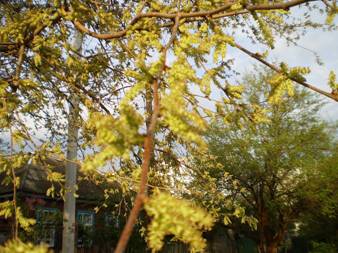
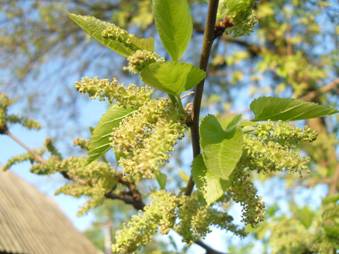
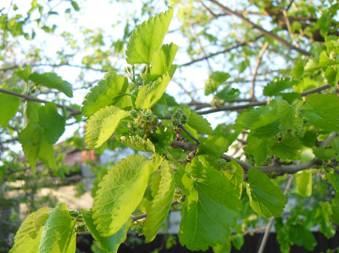
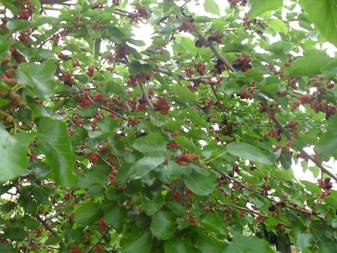
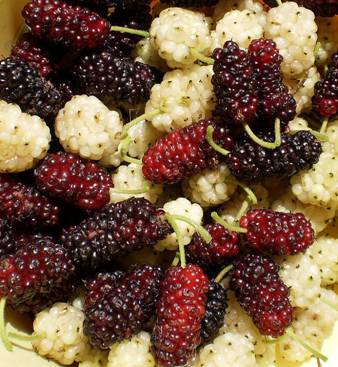
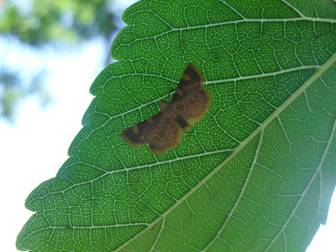
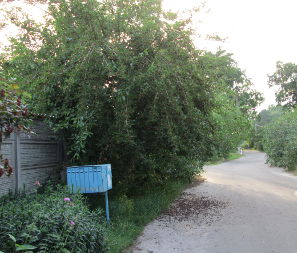
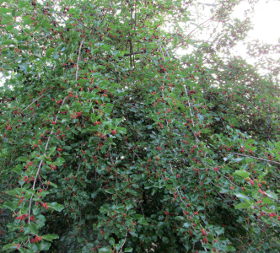
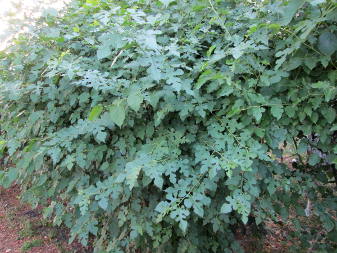
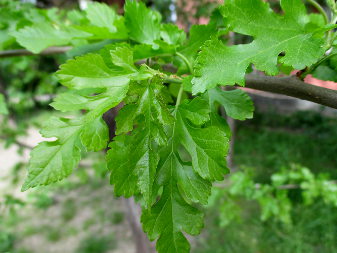
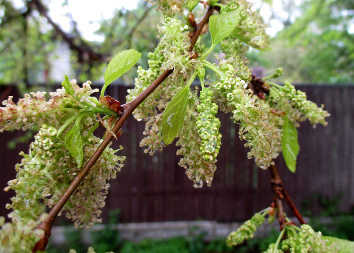
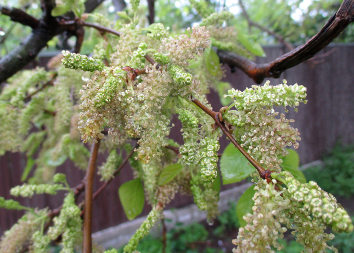
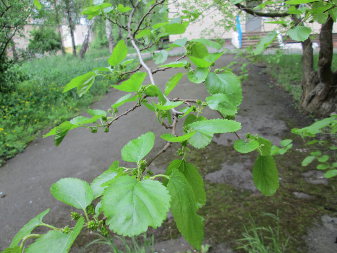
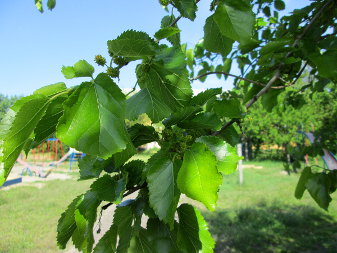
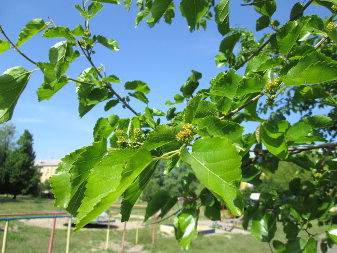
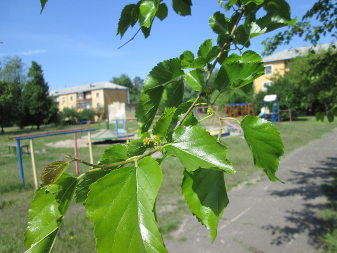
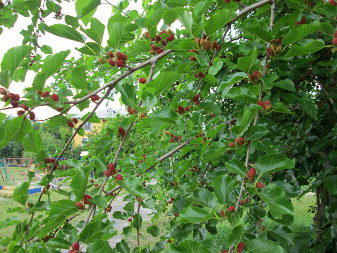
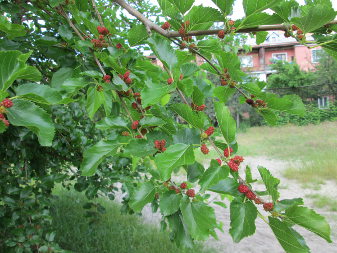
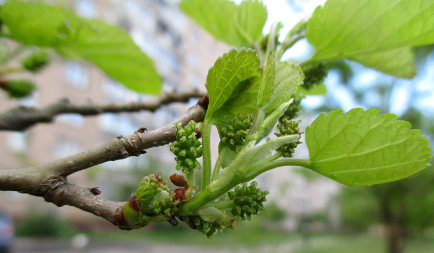
Mulberry (Morus), fam. Moraceae.
There are two species – White Mulberry (Morus alba) and Black Mulberry (Morus nigra). Besides, each of them has a lot of varieties. Grows only in the city (it would be great to propagate it in the forest, where now are only 2-3 trees, which give almost no fruit). However, city mulberries give huge crops, practically independent on weather disasters, and unfortunately, few people use them. In fact, the biochemical composition of these berries is perfectly balanced, and it would be only recommended to consume them as much as possible, since there are enough for everyone. The uncollected fruits fall within a few days, creating mud, so only the flyes get use of them. The berries contain lots of calcium, magnesium, iron, vitamins C and E, complete spectrum of amino acids (which is rare among fruits). Mulberries are also particularly rich in antioxidants, especially anthocyanins and resveratrol – a famous healing component of red grapes.
Mulberries are beneficial against metabolic disorders, anemia, gastritis, lowered acidity of stomach, biliary tract disease, and constipation. Their juce has strong bactericidal and antiparasitic properties – this explains good preservation of juicy and sweet fruits: even after falling down they often do not ferment or get moldy, but simply dry. The concoction from the leaves also has curative properties, e.g. against diabetes. And it was these leaves that sometime caused this plant to spread over the world: the silkworm caterpillars, the producers of valuable silk, needed not any but just this tender and nutritious feed. Another feature of mulberry leaves is interesting: sometimes, often in the young coppice shoots, they acquire three- or even five- and seven-lobe shape, reminding the leaves of closely related fig tree. And in autumn the leaves are usually retained until the frosts, after that they quickly fall down, without getting yellow.
The Ukrainians simply have to appreciate their mulberries – possibly, one of the best fruit trees growing here. After all, in colder climate they cannot ripen, while in warmer climate their season shortens significantly, and close to tropics mulberries can be untasty and sour, because they ripen too early, when the hot weather needed for them to get sweet has not come yet. Among other advantages of mulberries we can also note that it usually does not leave any unpleasant aftertaste, nor cause any indigestion or poisoning (though has notable laxative effect). The berries have no worms or other pests inside, and finally – they grow and fruit perfectly without using any fertilizers or pesticides, so it is one of the most ecologically safe products.